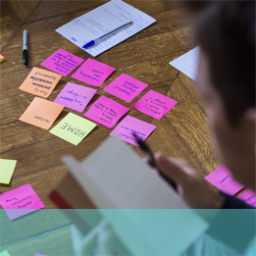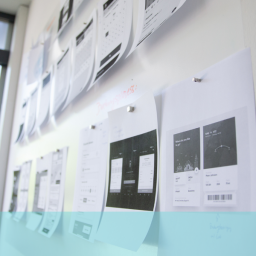
The use of focus groups has fallen into some disrepute in recent years, partly because there are more effective methods of research now for a lot of scenarios and partly due to the unpredictability of human behaviour and a tendency for people to say one thing but do something completely different.
In case you are not sure what a focus group is – it is simply a group of people gathered together for the purposes of learning their opinion of, or reaction to particular products or scenarios. They used to be utilised pretty extensively for everything from political policy making to testing new lipsticks but improved technology (plus a deeper understanding of the human element) has allowed testers to produce better tools and techniques for a lot of these needs.

When not to use a Focus Group
It might be useful to firstly indicate the activities that focus groups should not be used for now;
1. Usability testing – there are far more accurate and useful ways of testing this sort of interaction and behaviour;
2. Prototype testing – the same issue applies;
3. Anything that involves participants giving opinion or providing recall of experiences – here the human factor, peer pressure and the artificiality of the setting often defeat the accuracy of the feedback;
4. Product testing – for much the same reasons plus the limited exposure to the product and time to truly use and form an opinion.
When to use a Focus Group
What focus groups can be used for and provide a helpful and valid contribution is in more generalised, exploratory research where you are looking for ideas about needs, wants, gaps in the market and ideas for new products or services. When you are not looking for specific opinions or views and not facing users with a predetermined set of values or topics they will not feel under the same sort of pressures to deliver what they perceive the tester wants. This can stimulate useful debates and insights into particular areas of interest and can provide threads for the tester to follow up or begin constructing concepts with.
From this we can say that focus groups can contribute in early stages of product concept and development and in developing a feel for user wants and likely actions, the sort of environment they operate in and the motivations they feel. More concrete testing and outcome-driven activity should, perhaps, be left to other techniques.
Tips for running successful focus groups
If you have a research need that you think could be fulfilled through this route there are a few things to watch out for;
- Use the dynamics of the group but look out for opinion leaders and try to put alternative views and hypotheses and see how people react to them;
- Provide a context and atmosphere where contributors feel comfortable to discuss their own needs and interactions and where some of their real motivations and views might emerge naturally, if not consciously;
- Use a moderator who is good at picking up the nuances of body language, subtexts and other indications so they can interpret and guide the discussion to fruitful areas;
- Don’t ask specific questions or for direct views or opinions – let these flow naturally if they will but don’t challenge participants with making direct comparisons or judgements.s
There is still a limited place for focus groups in the tester’s battery of techniques. If you would like to know more about where and when to use them most effectively, why not give us a ring on +44(0)800 024624 or email us at hello@ux247.com.

















